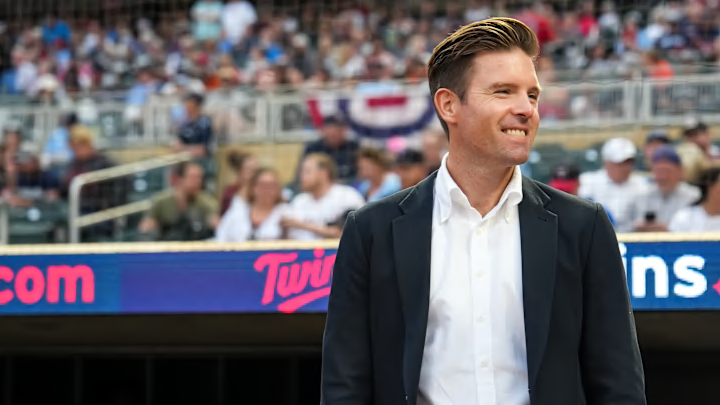The future of the Minnesota Twins is suddenly in flux. The Pohlad family sent shockwaves throughout Twins Territory the other week by announcing that the team is up for sale. Nothing is imminent and it's unclear how long it will take to find suitors and get a deal done, but for the first time in 40 years the team is going to be owned by someone else.
It's cause for celebration, as Twins fans are finally free from an ownership group that has done nothing but loathe them for four decades. Don't allow yourself to be gaslit by pro-Pohlad propaganda, this is a family that has constantly pinched pennies at the expense of loyal fans, and twice tried to rip the franchise away from Minnesota.
Lest we forget how Carl Pohlad was going to sell the team in 1997 to an ownership group intent on moving the team to North Carolina. How about when the Pohlads were about to sell Twins fans down the river for $250 million in the early 2000s and allow the team to be contracted?
The Pohlads veiwed the Twins as nothing more than a business, and fans have deserved so much better for a long time. Now they're going to get some much-needed change, but the question is whether or not things will actually be better.
New ownership raises significant questions about financial strategy, competitiveness, and fan engagement. While the Pohlads' have been characterized as cheap or thrifty, they were relatively predictable in their spending. While this approach may not suffice in a rapidly evolving baseball landscape marked by challenges like inequitable TV revenue, will the new ownership group guarantee a better future?
Could Twins fans get stuck with another bad ownership group after the Pohlads sell?
The Pohlads’ cautious approach has allowed for stability and consistency in the let's be good but not great category. They invested selectively, but not extravagantly, even when the situation demanded that approach. We saw that last season with the decision to not bolster the roster with any meaningful additions, something that has rightfully frustrated the fanbase since it threw cold water on the most excitement we've had for the team in quote some time.
One major consideration here is that new ownership does not guarantee a willingness to spend freely -- or worse, at current levels.
While fans often dream of a lavish spending spree akin to what large-market teams engage in, the reality is that ownership styles can vary widely. A new owner might maintain a conservative approach, prioritizing profit margins over competitive rosters. This could perpetuate the cycle of mediocrity that has plagued the franchise and continue undermining potential for growth. The Pohlads' were at least fan savvy enough to throw enough talent on the field to make the Twins relevant in the cash strapped AL Central, even if it felt like nothing more than posturing.
There's also off-field things that are worth considering that could impact things. Baseball is facing a serious TV revenue problem, with larger markets swallowing up most of the available income. For the Twins, this presents a dual challenge: to remain competitive, they must not only spend wisely but also innovate in how they engage their fan base. If new ownership fails to navigate these challenges effectively, the team could find itself lagging behind.
While a change in ownership might bring new opportunities, it also carries risks. The focus should not solely be on the financial approach of new owners, but also on their vision for the team’s future in a shifting baseball economy. Balancing fiscal responsibility with a commitment to competitiveness will be crucial for the Twins' long-term success.
It begs an old question: is it better to dance with the partner you know, more than the one you might get?
More Minnesota Twins news and rumors
